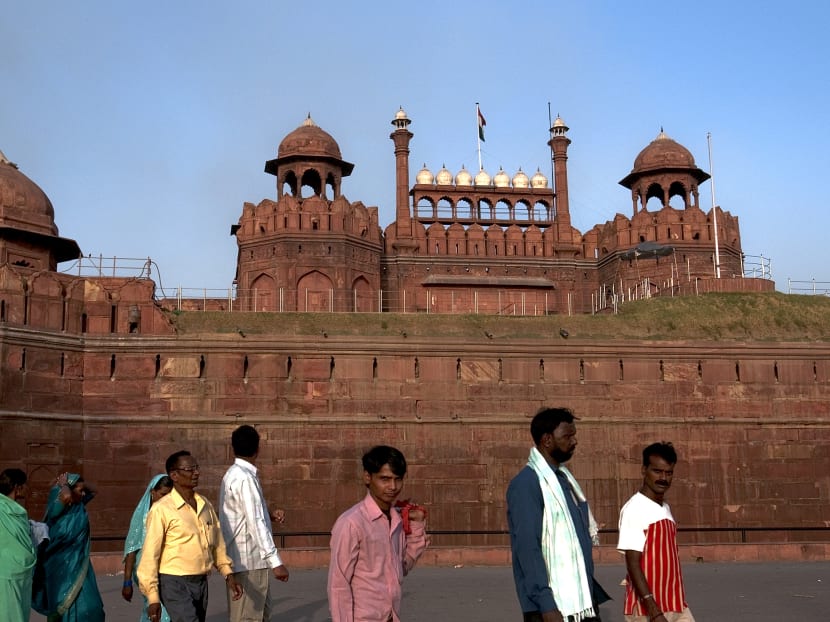Red alert for Indians with an innate distaste for big business
Indians have profound and continuing mistrust of the business community, more than 25 years after New Delhi began to liberalise its socialist-oriented economy. But stigmatisation of private business and the suspicion around credit decisions will hurt India’s long-term economic prospects.

Controversy erupted when it was revealed that one of India’s largest cement companies, Dalmia Bharat, had been chosen to “adopt” the Red Fort site as part of a new effort to woo corporate sponsors to help with the maintenance of India’s neglected monuments.
New Delhi’s 17th-century Red Fort, for 200 years a residence of the Mughal dynasty, is one of India’s most significant heritage sites and a symbol of resistance to colonial rule.
From its sandstone ramparts, the country’s first prime minister, Jawaharlal Nehru, raised the national flag on August 15 1947 — the day the British transferred power.
His successors have addressed the nation from the site on every Independence Day since.
But controversy erupted last month, when it was revealed that one of India’s largest cement companies, Dalmia Bharat, had been chosen to “adopt” the site as part of a new effort to woo corporate sponsors to help with the maintenance of India’s neglected monuments.
Launched last year, the “Adopt a Heritage” programme has sought to encourage companies, which are legally required to donate 2 per cent of their profits to charitable causes, to use some of these funds to improve amenities such as toilets, food services and groundskeeping at around 100 archaeologically significant sites.
The announcement that Dalmia Bharat would be responsible for improving lighting, installing drinking fountains, signs, visitor centres, and informative exhibitions at the fort prompted howls of outrage.
“Prime Minister Narendra Modi is preparing to mortgage India’s symbol of independence, the Red Fort, to corporates,” said a spokesman for the opposition Congress party, Randeep Singh Surjewala.
“Can heritage conservation be handed over to the highest bidder?” wrote Mr Sohail Hashmi, a Delhi-based historian who also leads heritage walks, in an article.
Critics raised some legitimate concerns about how a company with no experience in conservation would handle the sensitive task of managing a Unesco World Heritage Site and interpreting its complex, tumultuous history.
But the ferocious response to the sponsorship is also indicative of Indians’ profound and continuing mistrust of the business community, more than 25 years after New Delhi began to liberalise its socialist-oriented economy.
It is what Arvind Subramanian, the government’s chief economic adviser, has dubbed “stigmatised capitalism” — a deep-rooted antipathy towards business that increasingly acts as a drag on India’s economy.
It has hindered the resolution of a bad debt problem and depressed investor sentiment.
“We’ve lost the ability to distinguish between somebody taking advantage of the system because of their connections, and genuine entrepreneurship,” said Mr Amit Tandon, managing director of Mumbai-based Institutional Investor Advisory Services.
For decades after independence, the so-called “license raj” saw bureaucrats retaining tight control over private businesses.
The outright pursuit of wealth was vilified.
In the 2000s, the rise of India’s dynamic — and relatively clean — IT industry briefly boosted the image of private capital.
But scandals over the corrupt allocation of public resources and a bad debt crisis, in which politically influential tycoons failed to repay debts to state banks, renewed deep suspicions about India’s broader business community and its ethics.
Virtually all corporate debt defaulters today are viewed as near criminals, even when their troubles have nothing to do with the bad behaviour of the company’s owners.
“Today, the environment in the country is such that it seems that every businessman is corrupt and has gamed the system,” says Rajnish Kumar, chairman of the State Bank of India, the country’s largest lender.
“I am cautioning against this narrative.”
Mr Kumar frets that stigmatisation of private business and the suspicion around credit decisions will hurt India’s long-term economic prospects.
“For the economy to grow, there has to be a certain risk-taking capability in the system,” he says.
“If every non-performing loan is treated as a ‘connivance’ or a ‘nexus’ it will be bad for private investment.”
Meanwhile, Mr Tandon says, scions of India’s business families are looking for more opportunities abroad.
“We no longer have the next generation of business families buying into the India story with the same conviction as their fathers and grandfathers,” he says.
“They are saying they will look at investment opportunities wherever they come.” THE FINANCIAL TIMES
ABOUT THE AUTHOR:
Amy Kazmin is the Financial Times’ South Asia bureau chief.









